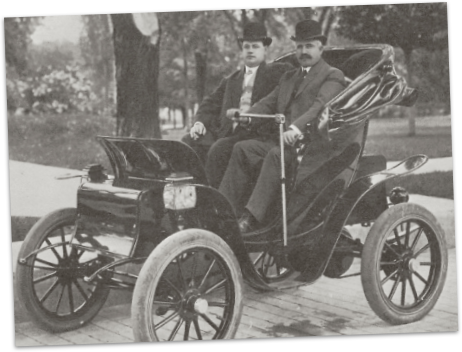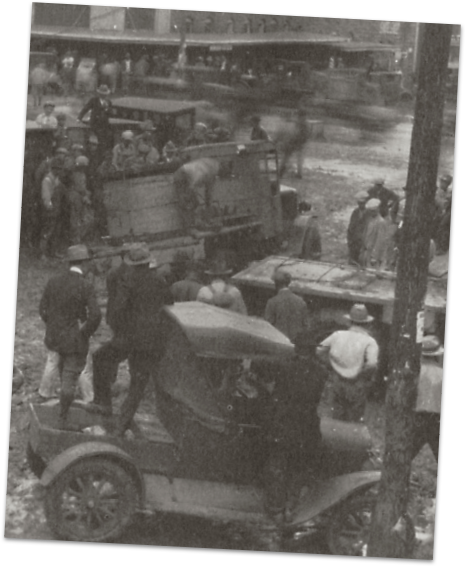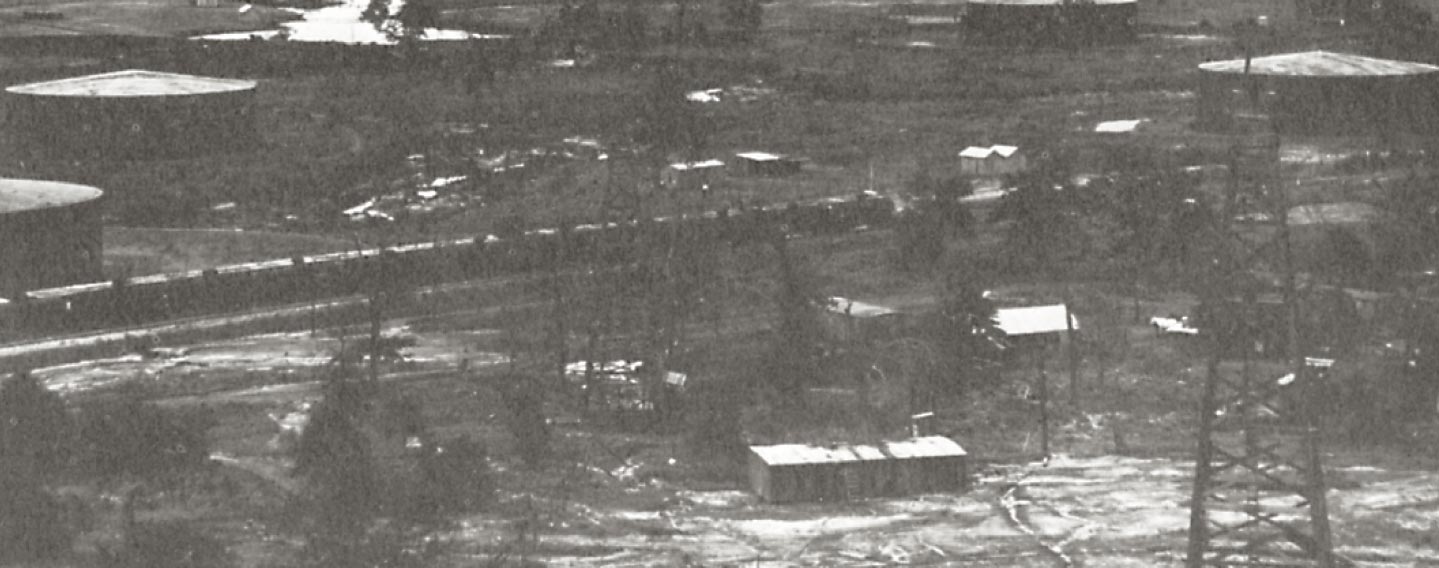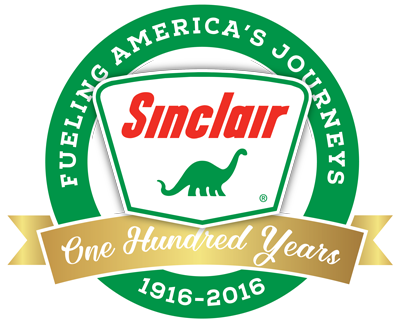1900s
He went from penniless druggist to the richest man in Kansas. In five years.
The immense success of Sinclair started with a failure.
Harry Ford Sinclair's father wanted him to become a small town druggist. Harry dutifully graduated from the University of Kansas School of Pharmacy and took over his father’s drugstore. But Harry also had a brash ambition, gambler's courage and intuitive stubbornness. A drugstore was too small a life for him.
Harry lost the drugstore in a speculation when he was 25 – just as an oil boom enveloped the country. He found work selling lumber for oil derricks.
Sinclair soon started buying and selling small leases on the side, traveling across southeast Kansas and the Osage Indian territory (now part of Oklahoma) by train or buggy, sniffing out prospects. Profits were small, but Harry saw enough success to attract moneymen such as Chicago meat-packer J. M. Cudahy, Pittsburgh capitalist Theodore Barnsdall, and Prairie Oil Company president James F. O'Neill.
Sinclair organized small companies for them around single leases, with himself as manager and usually treasurer. His salary was often a paltry $75 a month (worth about $1,875 today); for his creative work, he took a few shares of stock in each enterprise.
When the leases yielded oil – as they did with uncanny frequency – the speculators sold quickly, only to reinvest in Sinclair’s next wildcat venture.
Said a colleague of him in retrospect: “He was shrewd but hearty, tough but genial, a masterful trader, a hard-driving sportsman. He was MacGregor – where he sat, there was the head of the table.”


Still under 30 years old, Sinclair deferred to no one.
Though Harry’s own investments in each company were small, he insisted on absolute control so he could buy and sell quickly, finding the best possible profit in the constantly shifting industry. An eastern magnate, director of one of Sinclair's little one-lease companies, described Sinclair's management to a friend: "He calls us together occasionally to tell us what he's done."
Sinclair's talent paid off in 1904. His drilling syndicate at Kiowa, Oklahoma, netted him $100,000, which allowed him to develop 100 wells in Oklahoma’s Canary Oil Field. He then cast those profits into the Glenn Pool, Oklahoma's first huge producer. Glenn Pool spawned the Oklahoma oil boom, which eventually paid out more money than the California gold rush and the Colorado silver rush combined.
It made Harry Sinclair a millionaire. By 1907, he was the richest man in Kansas.

